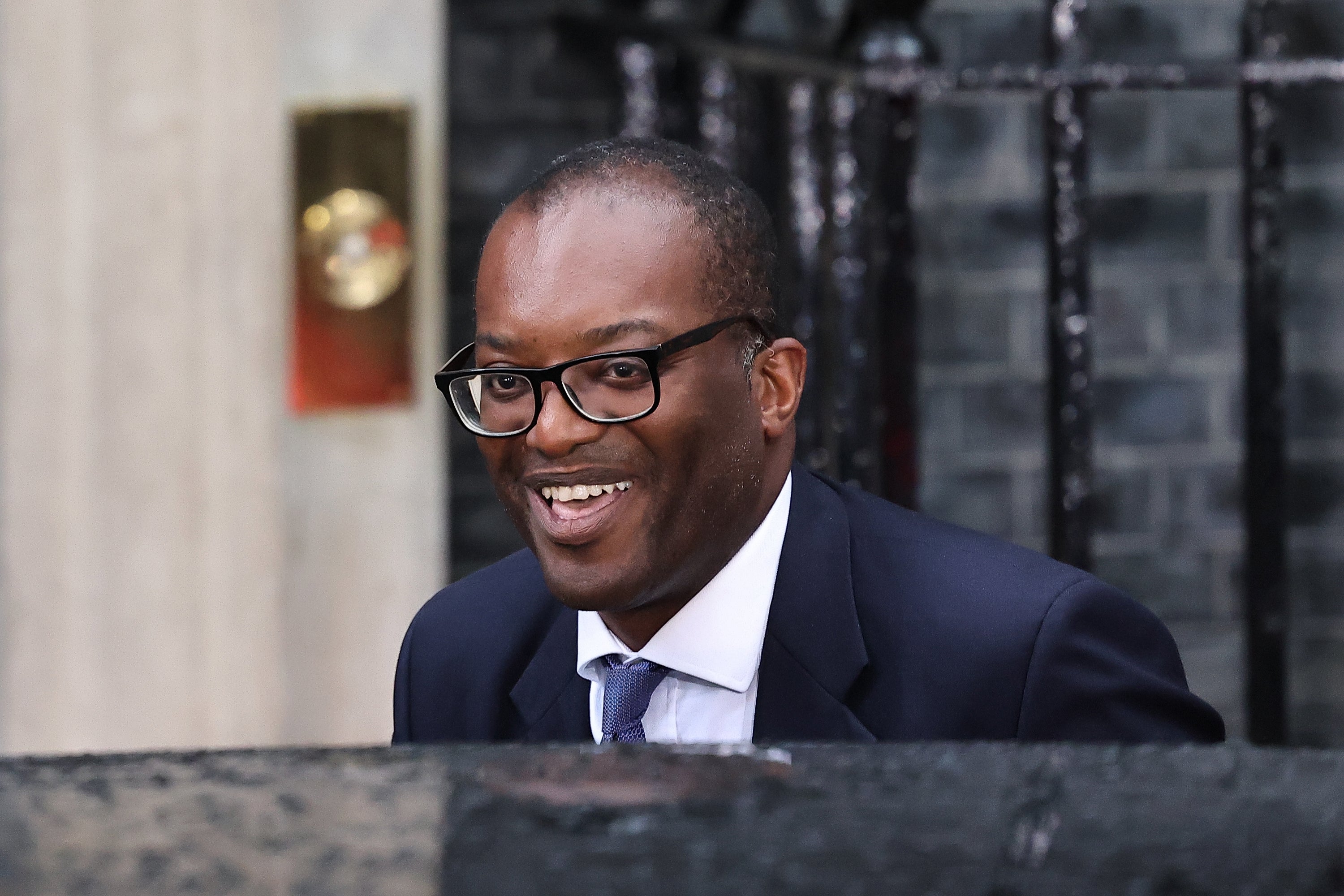The new chancellor is set on high-stakes gambling with public finances
Editorial: Mr Kwarteng’s high-handed approach threatens to leave the public finances and the independence of the Bank of England wrecked in his dash for growth

There is – usually – nothing wrong with ministers being forceful and refusing to take “no” for an answer from their civil servants. But not, surely, when a new minister breezes in and orders his bewildered staff to suspend the laws of gravity and make water run uphill.
It would be doubly wrong, in such a circumstance, to then sack his most senior civil servant because the hapless official had pointed out the very real practical difficulties with the plan, suggested an impact assessment and perhaps a few pilot schemes to see how the reversal of Newtonian physics and long-standing scientific orthodoxy (“stale” to some) might pan out in the real world.
That, however, seems to be what’s happening with the arrival in the Treasury of Kwasi Kwarteng, a man not obviously lacking in self-confidence. Just like that, with a flick of his ministerial fingers, like a character out of Lewis Carroll, Mr Kwarteng has decreed that the UK is to return to an economic growth rate of 2.5 per cent per annum, and that nothing else matters. Shades of the Queen of Hearts.
Presumably, though we cannot know this, Tom Scholar, the permanent secretary at the Treasury, raised some “no, chancellor” objections to the diktat, and he was asked to leave. Off with his head! Mr Kwarteng will find someone who is prepared to say yes. The upper reaches of the civil service, contrary to myth, are surprisingly replete with such obliging personalities.
But is the chancellor wrong? His ambition is laudable, but he invites failure because there is nothing much that he or a compliant civil service can do to bring it about. Shifting the growth rate of an advanced economy from stagnation to a good historical level would be a daunting task at the best of times. And these are hardly the best of times.
Perhaps Mr Scholar’s replacement will engage Mr Kwarteng on recent economic history, though Mr Kwarteng is a highly clever man and familiar with much of it – he has written a very readable account of the economic travails of the first Thatcher administration. The British economy enjoyed a long period of unbroken strong economic growth with low inflation from about the early 1990s to the financial crash of 2008. It was known as “the great moderation”.
The drivers were many and various but included: the continuing impact of Thatcherite reforms of previous decades, on labour markets, financial services and privatisation; the EU single market; immigration; globalisation; the internet and new technologies; operational independence of the Bank of England and inflation targeting; and a reasonably responsible attitude to the public finances during successive governments.
Now, most if not all of those benign influences have either been played out or have fallen into reverse, and Mr Kwarteng’s high-handed approach threatens to leave the public finances and the independence of the Bank of England wrecked in his dash for growth.
To keep up to speed with all the latest opinions and comment, sign up to our free weekly Voices Dispatches newsletter by clicking here
Mr Kwarteng and Liz Truss plead that radical tax cuts will restore incentives and boost growth. This may be true but such effects take time to come through, and may easily be wiped out if, as now, public borrowing threatens to embed inflation in the system and prompts the Bank to ramp up interest rates. The energy crisis may well mean unavoidable extra burdens of debt, but the risk to inflation is all the greater if taxation is slashed on top of the subsidies to households and businesses.
Mr Kwarteng is also keen on seizing those much vaunted “Brexit opportunities”. Yet they have proved elusive, even to a zealot such as Jacob Rees-Mogg. When he was promoted to business secretary, his role as minister for Brexit opportunities mysteriously disappeared. Certainly, if the UK weakened worker rights, as rumoured, or environmental safeguards, GDP might be boosted but it would be politically difficult to “sell”; and the EU-UK free trade agreement has “level playing field” and “non-regression” clauses that make such moves unlawful.
So all Mr Kwarteng is left with is a blind belief that cutting taxes and increasing public borrowing – regardless of inflation, the trade deficit and the value of sterling – will unleash such a wave of animal spirits in British business that growth becomes self-propelling and tax cuts self-financing. If it is anything, it is Keynesianism on amphetamines.
Or, truth to tell, a political gamble that the boom will last long enough for the Tories to win the next election before the economy blows up. No wonder the Treasury civil servants, who will still be around to try to pick up the pieces, are worried and resistant.






Join our commenting forum
Join thought-provoking conversations, follow other Independent readers and see their replies
32Comments